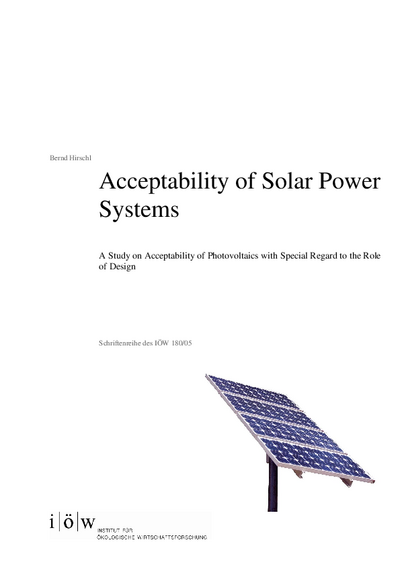Acceptability of Solar Power Systems A Study on Acceptability of Photovoltaics with Special Regard to the Role of Design
The generation of solar power (photovoltaics, PV) will play an important role for a sustainable global energy supply in the future. Solar power is environmentally friendly, does not release greenhouse gases and represents a peaceful alternative to the fossil and radioactive energy sources currently dominating the world’s energy supply. These “conventional” energy sources are scarce and may in-creasingly lead to conflicts. However, the spread of solar power faces various restraints. Up to now, research has covered mainly technical and economical aspects of this still comparatively costly power generation technology. But these aspects are not the only issues as far as the integration of PV as an architectural and functional element of buildings and landscapes is concerned. Too little consideration has been given to other factors of acceptance like the issue of design. To further explore design is-sues the European research project PVACCEPT was created. In this project, designers and solar companies cooperated in the development of innovative, marketable PV modules and applied them in several demonstration objects. The demonstration sites - mainly historical buildings under monumen-tal protection in tourist areas - represented the maximum challenge for the integration of photovoltaics and promised positive multiplier effects as well as a contribution to soft tourism. This report illustrates the results of the accompanying acceptability study within PVACCEPT, including interviews with citi-zens, tourists, architects and members of monument conservation departments. The results confirm the previously underestimated role of design and identify an urgent need for further information, edu-cation, regulation and R&D activities.



